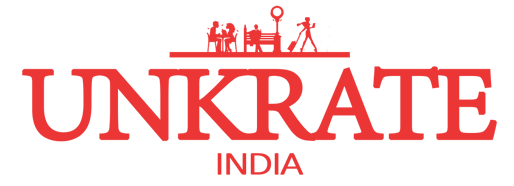All eyes will be glued to the television on 1st February 2021, when the Finance Minister of India, Nirmala Sitharaman presents the Union Budget 2021-22. The expectations from this year’s budget are soaring high across industries as businesses were battered due to Covid-19, especially the hospitality sector, which has been one of the worst-hit industries.
2019 was a relatively good year for the entire hospitality industry with a contribution of 6.8% towards the country’s GDP. However, it was severely affected in 2020 owing to the COVID-19 pandemic. Occupancy levels and revenues hit new lows, cash flows were constrained and travel restrictions were in place, as a result, the entire industry took a tremendous hit.
Even after few months of businesses resuming across the country, the hospitality industry is yet to witness the pre-Covid demand. While Christmas and New Year were looked upon as the revival period for the hotels and restaurants, the strict measures of state governments resulted in a major dampener.
Hence, the Union Budget 2021 becomes extremely important for the revival of the Indian Hospitality sector.
Let’s look at the expectations of the industry leaders from this budget:
GAURAV SINHA, HOTEL MANAGER, JW MARRIOTT BENGALURU

“The upcoming union budget holds in store the future of the hospitality and travel industry. Several industry associations and governing bodies have already made requests to the government with policy changes. There is a high expectation that the government will review these proposals to extend benefits to the industry.
Expectations are that finance ministry intervention will grant infrastructure status to smaller hotel projects thus leading to long-term funding and lower interests, thus encouraging the growth of mid-large size hotel projects. Lowering of tax slabs will favor higher levels of travel and enable hotels to generate higher revenues. The hospitality industry deserves the due diligence in the upcoming budget and we are anxious to see the outcomes soon.”
SHASHI KUMAR, FINANCIAL CONTROLLER AT DOUBLETREE SUITES BY HILTON BANGALORE

“With the upcoming budget, we hope the focus is to build on consumers’ confidence to spend on services that the industry offers. Any cut or reduction in GST, applicable on hospitality services will go a long way in bringing new demand to hotels which in turn will benefit the consumer and the hotels at large. This will also help rooms and other facilities recover faster as the total cost will reduce considerably.
With the ease of lockdown, travel to drivable destinations and leisure destinations has increased. However, city hotels continue to see a challenge in their overall uptake as Work from Home continues and there is still no clear visibility on restarting international travel. At this stage, any form of relief will go a long way in helping the overall business recovery sentiment – be it relaxation on taxation or extension of licenses.”
ASLAM GAFOOR, GENERAL MANAGER, LUXURY DINING, DINEOUT

“The government has not provided any SOPs to reduce the burden of the community during the pandemic. A couple of expectations from the budget is to provide various tax relief to the industry since most were shut majority of last year and even now the business has not recovered fully and is slowly bouncing back. In addition, with the increased demand for domestic travel, the government should help to build new tourism circuits with adequate infrastructure for travelers and operators which will help boost local tourism.”
PRANAY VERDIA, MULTI-PROPERTY GENERAL MANAGER, COURTYARD & FAIRFIELD BY MARRIOTT BENGALURU ORR

“In order to ease the repercussions of the situation slightly, it is imperative that the sector is provided with support from the government in the Union Budget 2021.
A few of the crucial expectations include a reduction in taxes and compliance measures. Direct taxes like GST require a drastic reduction which would help increase occupancy rates. This would help us remain competitive with other Asian countries where tax percentages are comparatively lower.
Accord industry status to the hospitality and tourism sector in the concurrent list which would help provide access to long-term funds under the RBI infrastructure criteria. Promoting the Incredible India campaign could also deem beneficial to the tourism sector. Moratorium relief should be extended in order to support the current business owners in order to weather the storm.
While we stare at a long road to recovery, the union budget will define where the industry goes from here and we are definitely hoping that the hospitality sector is a priority for 2021-2022.”
TANAI SHIRALI, SR. DIRECTOR OF OPERATIONS, JSM CORPORATION

“One of our major pleas for this year’s budget is the rollback of input credit on GST. We also would urge for more liquidity and policy support as the real crunch time is what we are going to face in the next 12-18 months. Subsidizing the cost of the vaccine for all hospitality workers would be a shot in the arm and boost customer confidence with a definite increase in spending as more patrons would come out and dine as there would be a heightened sense of safety.”
VINEET KOCHAR, PRESIDENT OF OPERATIONS, AZURE HOSPITALITY

“The biggest challenge is the ease of doing business. We expect the government to relook at the compliances and licenses policy. Waiver of licence fee especially excise for a year will be highly appreciated as most restaurants paid for the licenses before the Covid-19 pandemic hit the nation and lockdown was announced. Also, input on GST will further give the industry a boost. The government could also consider extending MSME working capital loans to the industry on subsidised rates.
PRATHIK SHETTY, PARTNER AT THE RESERVOIRE, COCKTAIL BAR & KITCHEN

“Permitting commercial establishments to be open for 24 hours in Bengaluru is a great move. However, this has to be supported with the right infrastructure in terms of public transport facilities. Government initiatives to extend public transport timings will help, not only F&B establishments, but also corporate employees, especially those who work in night shifts. This will enable a culture of being able to go out at any time of the day, which will in turn prove beneficial for the most commercial establishments and industries.
Removal of the input tax credit in the GST regime has proven detrimental to the industry. Further changes to this in the form in re-introducing it, will go a long way in supporting the entire supply chain involved.
It would also be great if the Indian government could take a leaf out of UK’s ‘Eat Out Help Out’ scheme, which aims at supporting F&B businesses in the post-Covid economy. It need not be a replication, wherein the government takes up a certain percentage of the restaurants’ compliance and operating costs.
Lastly, simplifying and digitisation procedures in the obtaining of compliance documents from relevant government authorities will assist in ease of operations for new and existing F&B establishments. So any initiative here would be welcome.”
DHARMESH KARMOKAR, DIRECTOR, THANGABALI & ESORA
“This year we expect the smaller things to be fulfilled in the budget. Firstly, an official acknowledgment that F&B is an industry with the largest workforce. Hence, the creation of a safety net for its workers and staff like subsidised health insurances and other schemes will be important. Also, some older requests from the industry include single-window clearance for all permissions, uniform rules across states, extended operating hours and input tax credit among others.”

